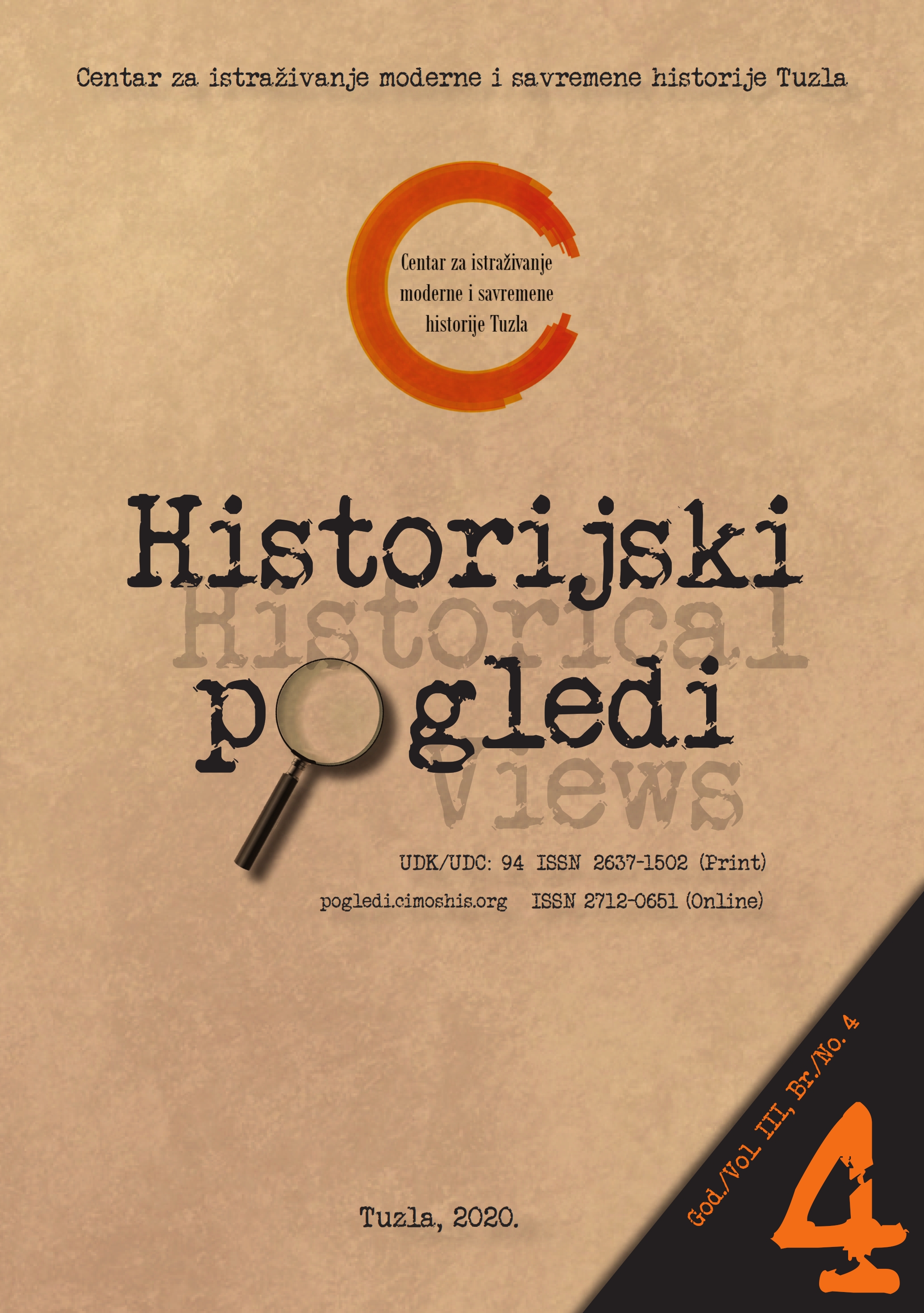POLITIKA I HISTORIJSKI REVIZIONIZAM: TOKOVI RELATIVIZACIJE KOLABORACIONIZMA I NORMALIZACIJE „RAVNOGORSKOG ANTIFAŠIZMA“
POLITICS AND HISTORICAL REVISIONISM:FLOWS OF RELATIVIZATION OF COLLABORATIONISM AND NORMALIZATION OF „RAVNA GORA ANTI-FASCISM“
Author(s): Safet BandžovićSubject(s): Political history, WW II and following years (1940 - 1949), Historical revisionism
Published by: Centar za istraživanje moderne i savremene historije Tuzla
Keywords: World War II; collaborationism; historiography; revisionism; politics;
Summary/Abstract: At the end of the 20th century, the perception of peoples and states on their own past changed profoundly in the Balkans as well, with major geopolitical changes. Its processing and instrumentalization are encouraged by the complex permeation of the global relationship between national and ideological forces and local ruling interests. Every political and ideological victory, "must find its legitimate stronghold in the past." The disintegration of the ideological paradigm and the Yugoslav state union was accompanied by a balancing of the past from the outside, in accordance with the interests of the time and dominant politics, the accelerated construction of new national identities, the outbreak of a "civil war between different memories", the reversal of consciousness. These processes in the post-Yugoslav countries, in "transitional historiography", along with the new "reduction of totality", led to "retraditionalization", to the problematic waves of historical revisionism especially related to the Second World War, the correction of the so-called historical injustices, normalization of collaborationism, nationalization and relativization of the notion of anti-fascism. National historiographies in these countries have made a turn from the former glorification of the People's Liberation Movement (NOP) to its relativization, as part of the general trend of radical "re-nationalization". None of them carried out such a "thorough confrontation with the anti-fascism" of the NOP as Serbia. Numerous historians, with the participation of parascientific formations, give legitimacy to constructions of devaluing the anti-fascist legacy and rehabilitating Quisling forces. The falsification of history has also led to the relativization of their responsibility at the expense of those who have in part confirmed themselves as anti-fascists. Revanchist historiography imposes alternative truths. There is a real consensus on the definition of "good" nationalism, which for many is "elementary patriotism". Various nationalist currents are portrayed as anti-fascist. The collaborationist forces defeated in 1945 became "misunderstood victims of historical destiny." Their actions are placed in the context of their anti-communism, promoted in reasonable national politics. Derogating from anti-fascism also led to "anti-anti-fascism". He relativizes the crimes of fascists and collaborators, re-evaluates victims and executioners. It is not common practice for "historical truths" to be written in parliaments and promulgated by law, as has happened in Serbia. Courts and parliaments cannot valorize someone’s historical role. Historical science can do that. Revisionism is based on selective forgetting and the construction of a "desirable history", it is "a reworking of the past carried by clear or covert intentions to justify narrower national or political goals." The obvious expression is "political culture in a society, that is, it speaks of the dominant political value orientations in it". Judicial rehabilitation is understood as an ideological and political measure of revision of history. A distinction should be made between the individual rehabilitation of innocent victims of persecution by the authorities after 1945 and a light revision of history. The political and ideological aspects of rehabilitation, with the support of the media and the pseudo-legal mechanism, include manipulating a number of topics to delegitimize the system that changed social, economic, political and national relations after 1945 - characteristic of monarchist Yugoslavia. In revisionist historiography, communists are treated as opponents of Serbian national interests ("red devils"), intruders in national history, and the socialist revolution as an excess. With the adoption of certain laws and the application of a whole arsenal of rhetorical means and concealment of a number of historical facts, the notion of Draža Mihailović's Chetnik movement in Ravna Gora was especially reworked, neglecting and relativizing his criminal practice, to make this "new anti-fascist" side a desirable "pre-communist ancestor". "authorities. This collaborationist movement is also relieved through anti-communism, it is marked as patriotic and anti-totalitarian. His rehabilitation in Serbia has multiple meanings and consequences in its social life, but also in regional relations.
Journal: HISTORIJSKI POGLEDI
- Issue Year: III/2020
- Issue No: 4
- Page Range: 133-177
- Page Count: 45
- Language: Bosnian

